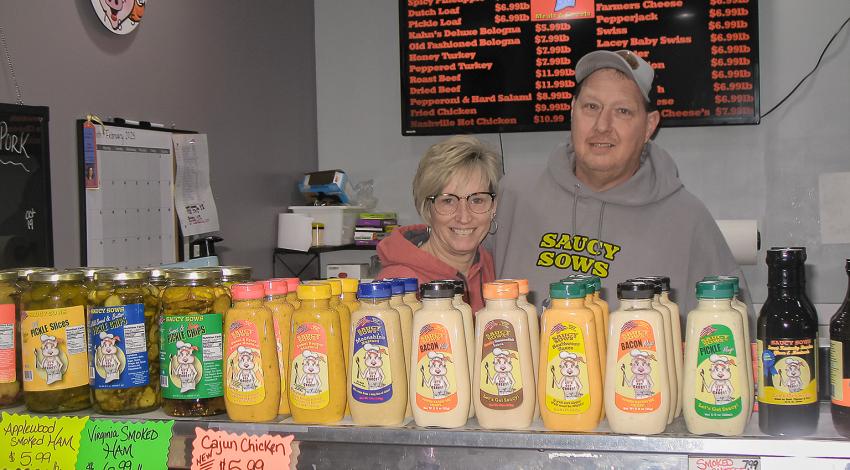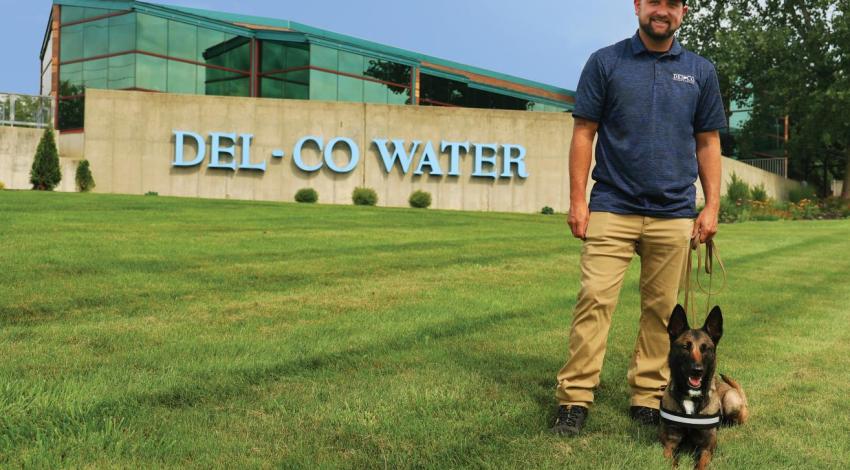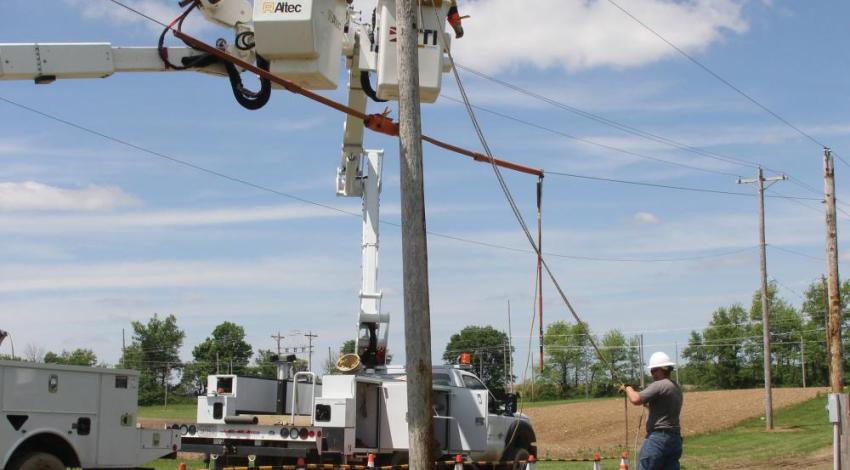Electric cooperatives often are destination workplaces within the communities they serve. Co-ops offer competitive pay, strong benefits packages, and a commitment to work-life balance.
But there’s another aspect of a co-op career that may not be apparent to potential employees: Co-ops tend to promote from within when job openings arise. Part of that’s because they tend to hire strong employees, but they also work hard to prepare those employees to handle more responsibility when the time comes.
Matt Berry was one of the first Ohio co-op employees to go through the Leadership Edge program in 2017. He has since been promoted to CEO at Midwest Electric in St. Marys (photo courtesy of Midwest Electric).
Rise to the top
Matt Berry and Tim Street served similar roles at two Ohio distribution cooperatives in 2017 — Street was director of communications and member services at Mid-Ohio Energy Cooperative in Kenton, while Berry was manager of community and customer relations at St. Marys-based Midwest Electric — when the statewide cooperative association initiated a leadership-training program called Leadership Edge for co-op employees around Ohio.
Both employees’ managers recognized leadership potential in their employees and nominated them to participate in that first session. By coincidence — or maybe not — both also have since risen to become CEOs at Ohio electric distribution cooperatives: Berry at Midwest, and Street at Logan County Electric Cooperative in Bellefontaine.
“I don’t really think people go into the program thinking they’re going to become a general manager or CEO,” Street says. “It’s designed more to show staff how to lead departments, to lead a crew, even to lead themselves or their families; that’s the benefit. But I guess our situation shows that it certainly can happen.”
Know yourself first
The program begins with a series of self-assessments, then uses the results to teach each individual to recognize their own unique interpersonal style and how they might interact more efficiently with the styles they find in those around them.
“It’s one thing to know the nuts and bolts of the business, but as you get further into management, you deal less with nuts and bolts and more with people,” Berry says. “At a cooperative, everyone’s roles lean so heavily on accomplishing their day-to-day tasks, it’s easy to lose sight of the people skills that are crucial to being a leader.”
The training, Berry says, often comes with a caveat: “We try to give our employees every opportunity to grow professionally,” he says. “But since co-ops are generally so small, opportunities to rise into a leadership role might be limited.”
Street says skills developed in Leadership Edge, however, translate even outside the workplace. “Not everyone has or even will have direct reports at a cooperative,” he says. “The tools and skills Leadership Edge teaches can be used beyond the workplace. They can even be implemented in your home life. One of the principles is ‘Lead from wherever you are,’ so when an opportunity to lead arises, no matter the situation, you’re going to be ready.”
Expanding scope
The program has been so successful, it’s spawned a pair of spin-offs: In one, the curriculum has been adapted and condensed to be appropriate for lineworkers and others who might lead crews in the field.
Dwight Miller, director of safety and loss prevention at Ohio’s statewide co-op association, says it was a natural to bring the Leadership Edge principles to the training already undertaken by the linemen. “It just gives these guys a broader perspective to their work than just the everyday linework elements, so they can relate better to the guys they’re leading,” Miller says. “It adds another level when they have that bigger picture.”
The other, dubbed Leadership Excellence, is for those already in executive leadership roles. “The new program will give general managers a better sense of those skills their employees are bringing back to the co-op,” says Street, who, after completing his training, came on to run the program for the statewide association before advancing to become CEO at Logan County EC.
Employee boost
The program has become another way co-ops are able to reward employees and keep them happy even when there may not be much room for advancement.
“To see that your employer sees something in you and is willing to invest in you to cultivate that really gives you, as an employee, a sense of pride in your work,” Street says.
“Honestly, once you work in a co-op you get to understand how great of a place it is to work,” Berry says. “We understand that everyone has their hopes and dreams and goals, so even when there may not be a promotion available, we’re going to make that investment in training and development, add those skills, and people stay pretty happy.”











